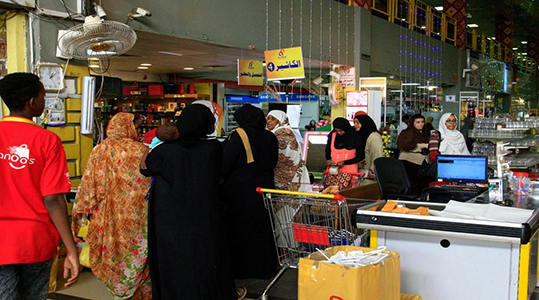The Sudanese trade deficit jumped 51.2 percent year-on-year, during the first half of 2020, to $ 2.493 billion. According to the Central Bank of Sudan data, the trade balance deficit increased from 1.648 billion dollars in the first half of 2019.
The Sudanese trade balance was affected by the decline in the local currency exchange rate, the increase in the value of imports from abroad, and the decline in exports, with the increase in difficulties and increases in production costs.
According to central bank data, exports abroad fell by 15.1 percent in the first half of the past to $ 1.499 billion, down from $ 1.767 billion in the corresponding period. According to central bank data, exports abroad fell by 15.1 percent in the first half of the past to $ 1.499 billion, down from $ 1.767 billion in the corresponding period.
Sudan suffers from renewed crises in bread, flour, fuel, and cooking gas, as well as a continuous deterioration in its national currency. In this context, the transitional government announced the imposition of a state of economic emergency, against the backdrop of a terrible deterioration of the national currency and the enactment of deterrent laws against speculators, punishable by up to 10 years in prison. The depreciation of the national currency against foreign currencies has caused the citizens' suffering from a successive rise in the prices of basic commodities, high rents, transportation and the deterioration of most of the living services.
Source (Al-Araby Al-Jadeed Newspaper, Edited)

